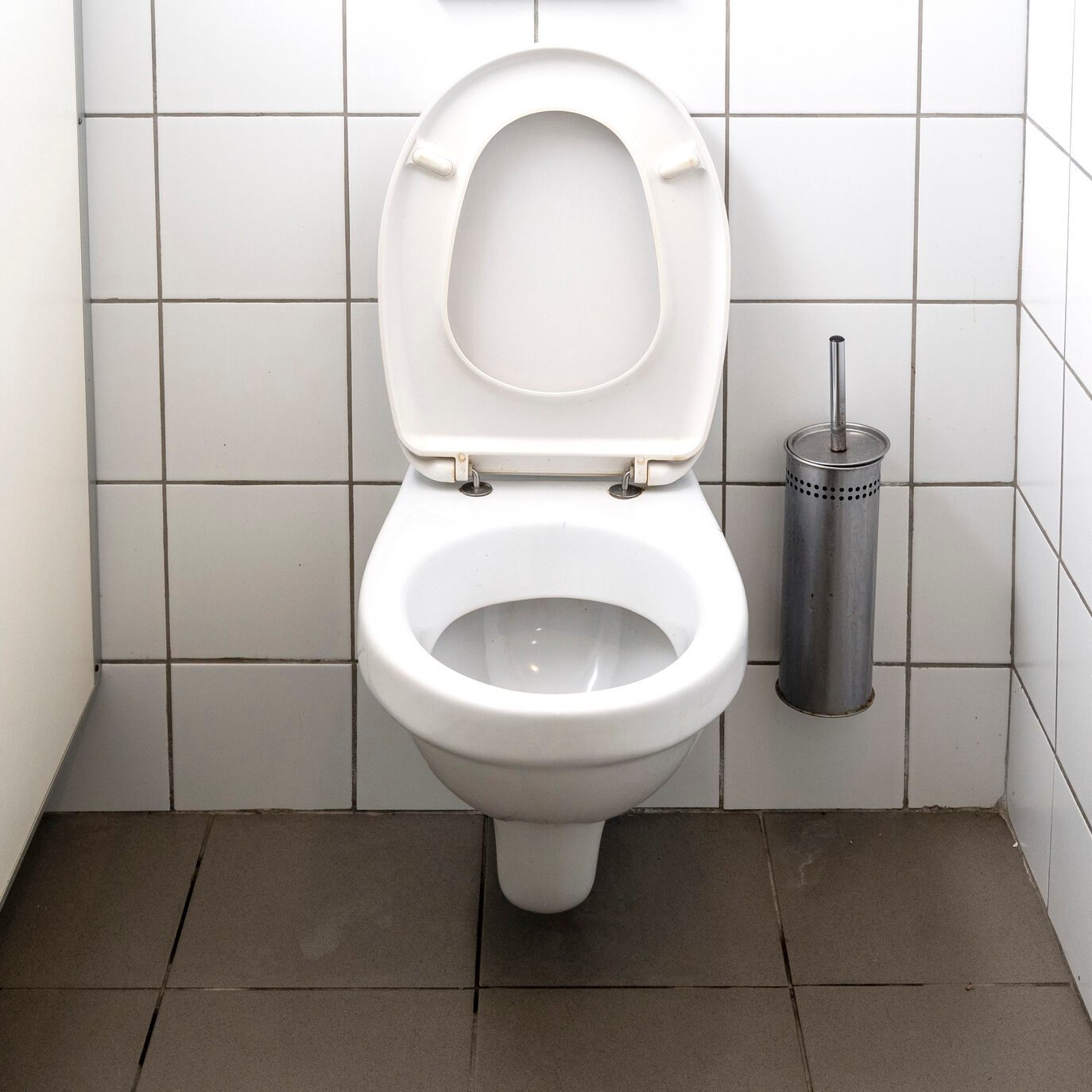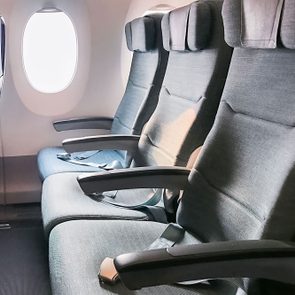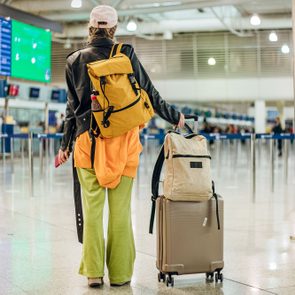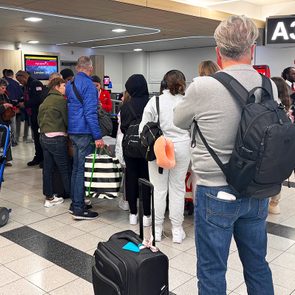One of the best things about traveling is the opportunity to experience unexpected things you might not find at home. But unforeseen expenses probably aren't at the top of your bucket list!

From Toilets to Lounge Chairs: 9 Surprising Things You Have to Pay for When Traveling Abroad

Sure, you know traveling can be expensive. From airfare to hotels to meals to local transportation and entertainment, there’s a lot you need to budget for. What you might not expect? Paying sometimes seemingly paltry and unexpected fees. But what we take for granted as being complimentary here in the United States may not come gratis in other countries.
Travelers recently swapped stories on Reddit about the surprising costs they’ve encountered abroad. As a frequent traveler living abroad in Costa Rica and Jordan, I recognize many of the examples Redditors shared. And I think the best way to minimize the shock (and hopefully some of the costs) is to know what you’re getting into before you pack your suitcase.
Ahead, we’re highlighting some of the surprising things you have to pay for abroad and the countries where you might find these fees.
Get Reader’s Digest‘s Read Up newsletter for more travel, humor, tech and fun facts all week long.
Tap water

Countries where you may have to pay: Belgium, Germany, Italy and Switzerland
You can reasonably expect to pay for bottled water any place where water is unsafe for drinking. But even in countries where potable water flows from the tap, you might find a water fee on your restaurant bill.
“If you do not specify you want tap water, a server will assume you want a bottle,” says Amanda Bates, a Fora travel advisor. Being asked if you want sparkling or still is a telltale sign you are about to be charged for that water, she adds.
In some cases, you can avoid the fee by simply requesting tap water. But travel blogger Jackie Swayze warns, “Even then, some restaurants don’t offer it.” Her suggested workaround if you really don’t want to pay for water? Bring your own bottle.
Ketchup and other condiments
Countries where you may have to pay: Austria, Denmark, France, Hungary, Italy, the Netherlands, Romania, Spain, Switzerland and Thailand
If you’re the type to grab a handful of ketchup packets for your McDonald’s fries, you might want to check the menu first. In many countries, ketchup and other individually packaged condiments (such as mayonnaise in Thailand) are not always included in your purchase. Fortunately, the cost is usually low (around 50 cents), but it’s still good to know before you drop a few dollars on dipping sauces.
Bread and small bites
Countries where you may have to pay: Germany, Greece, Italy, Japan, Portugal and Spain
We wouldn’t blame you for scarfing down a basket of bread after a long day of sightseeing. But the restaurant might charge you. “In Spain and Portugal, you may think the server is being kind by bringing you little dishes of crackers, potato chips and olives or bread,” Bates says. “But don’t assume it’s complimentary.”
In Italy, the fixed “cover” charge is called pane e coperto (meaning bread and cover). It costs around €2 to €5 ($2.10 to $5.40) and generally includes bread, tableware and place settings. Although this type of charge may shock first-time visitors, it’s not a scam; it’s the norm in several European countries, and the prices are generally listed on the menu and receipt.
You may also encounter unrequested appetizers in Japan, says Marian Goldberg, a Japan travel specialist and the founder of Goldberg on Travel. She says these are automatically delivered to the table at some restaurants and will appear on the bill as otoshi (お通し), meaning appetizer. These small bites that typically cost between 300 and 700 yen (about $5) may not be something you’re in the mood to eat—and may not be small at all. “For example, I’ve been given half a head of raw cabbage,” Goldberg says. “However, since there’s no tipping at restaurants in Japan (although sometimes a 10% service fee is already included), I usually do not complain about the table charge.”
The lesson here: Just because an item is on your table, doesn’t mean it’s complimentary. In some cases, such as bread in Portugal, you can refuse it. In other places, the charge is automatic and just part of the dining culture. Ultimately, if you’re traveling abroad, you can’t expect things to be as they are in the U.S. Or, as Redditor Aknomnoms put it, “Sir, this isn’t an Olive Garden.”
Takeaway containers
Countries where you may have to pay: Canada, Czech Republic and France
A charge for takeaway containers and even the cost of a simple paper bag could show up on your receipt at fast-food joints in Canada and the Czech Republic.
Toilets and tissues

Countries where you may have to pay: Brazil, Belgium, China, Colombia, Cuba, Czech Republic, Ecuador, France, Germany, Italy, Mexico, the Netherlands, the Philippines and Thailand
Who could have imagined there’d be so many tissue-less toilets and locked-up bathrooms abroad? Many travelers share stories of navigating coin-operated turnstiles to access toilets in Europe or bargaining with bathroom attendants who collect entrance fees and ration squares of toilet paper in Latin America and Southeast Asia.
The issue is not so much the actual cost (which is typically less than a dollar). It’s the bathroom barriers—which may include attendants, keys, codes, turnstiles and coins—and the panic when you realize you have no cash on hand. Then there’s the fact that paid facilities do not guarantee clean ones. Or toilet paper. Or soap. Or even toilet seats.
Some experienced travelers suggest the alternative of popping into a public restroom at a hotel, university or public building such as a city hall. But these options are not always nearby or open.
Travel blogger Maria DiCicco’s first experience on her own in a foreign restroom was so memorable that it inspired the name of her business and blog, Always Pack Tissues. At 8 years old, she snuck into a public restroom in the Vatican, then realized—too late—that there was no toilet tissue in the stall. After frantically searching for any scraps of paper in her pockets, she shamefully found only the Vatican map to use as toilet tissue. “This was the day I learned about bathroom attendants in foreign countries,” DiCicco says, “and forevermore I carry coins and tissues.”
Bed linens
Countries where you may have to pay: Iceland, Finland and Sweden
In many parts of the world, budget accommodations are known to charge for bed linens, which gives thrifty travelers the option to save money by bringing their own. But if you’ve not done your research and didn’t pack any, you may end up paying extra.
“The first time I had to pay for sheets [while traveling in Sweden], I was pretty shocked—especially because they were just handed to me at reception,” says travel blogger Amber Haggerty. “My friends in Sweden assured me this was a common occurrence (though not universal).” Other travelers have reported optional bed linen services when booking some cabins and cottages in Iceland and Finland as well. “Read the fine print for hostels and budget accommodations,” Haggerty advises.
Heating and air conditioning
Countries where you may have to pay: Ireland, Greece and some in Southeast Asia
Travelers have encountered extra fees for air conditioning in some accommodations in Southeast Asia and the Mediterranean. And Natasha Colkmire, owner of The Free Life Travel, says she had a not-so-warm welcome at an Airbnb in Ireland. The owner told her she’d need to pay extra to turn on the heat—despite no mention of this additional fee in the listing. Colkmire recommends double-checking what’s included in the listing (and reporting the host to the platform if they’ve misrepresented the amenities) and always being prepared for the weather and surprise fees. “If you’re traveling to Ireland and staying in an Airbnb, beware that you may need to bring warm pajamas or extra cash [for the added expense of heat].”
Hiking trails and waterfalls
Countries where you may have to pay: Argentina, Costa Rica, the Faroe Islands and Portugal
Many countries charge an entrance, environmental or maintenance fee to access hiking trails, waterfalls and other natural attractions. This shouldn’t come as a surprise to Americans who are familiar with paying fees to enter national parks. But some travelers find the actual cost surprising. For example, in Costa Rica, the non-resident entrance fees for the La Fortuna Waterfall and Arenal 1968 Trail are $18 and $26 per person, respectively. (While I agree some entrance fees are steep, I am happy to support places like Costa Rica that maintain trails and protect natural areas to allow visitors to experience them safely.)
Beaches and beach chairs

Countries where you may have to pay: Ecuador, Egypt, Italy and the Philippines
Although public beaches in many places are free, they aren’t always clean or safe—forcing travelers to opt for private beaches that come at a cost instead. And then there’s the issue of no free space on the sand in places where resorts or private companies set up beach chairs … then charge visitors to use them.
Why trust us
Reader’s Digest has published hundreds of travel stories that help readers explore the world safely, easily and affordably. We regularly cover topics such as the best places to visit (and the best times to visit them), tips and tricks to zoom through airport security, flight-attendant secrets, hotel-room hacks and more. We’re committed to producing high-quality content by writers with expertise and experience in their field in consultation with relevant, qualified experts. We rely on reputable primary sources, including government and professional organizations and academic institutions as well as our writers’ personal experiences where appropriate. We verify all facts and data, back them with credible sourcing and revisit them over time to ensure they remain accurate and up to date. For this piece, Sunny Fitzgerald tapped her experience as a longtime travel writer and frequent traveler to ensure that all information is accurate and offers the best possible advice to readers. Read more about our team, our contributors and our editorial policies.
Sources:
- Amanda Bates, Fora travel advisor
- Jackie Swayze, travel blogger
- Marian Goldberg, Japan travel specialist and founder of Goldberg on Travel
- Maria DiCicco, travel blogger, Always Pack Tissues
- Amber Haggerty, travel blogger
- Natasha Colkmire, owner of The Free Life Travel
- Visit Faroe Islands: “Hiking guidelines/fees”
- Arenal 1968



